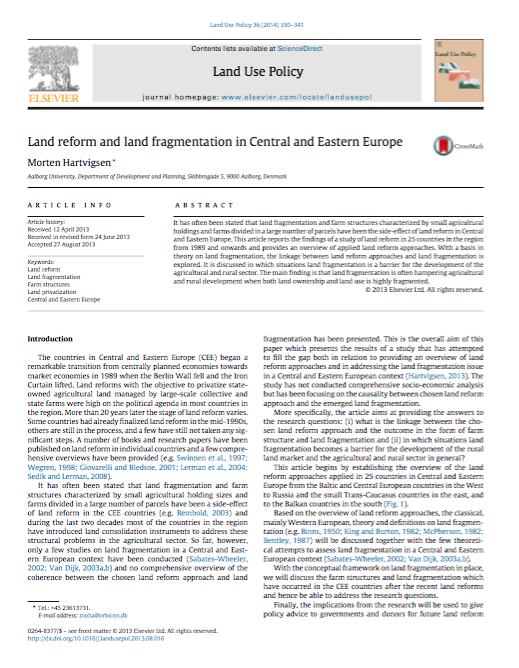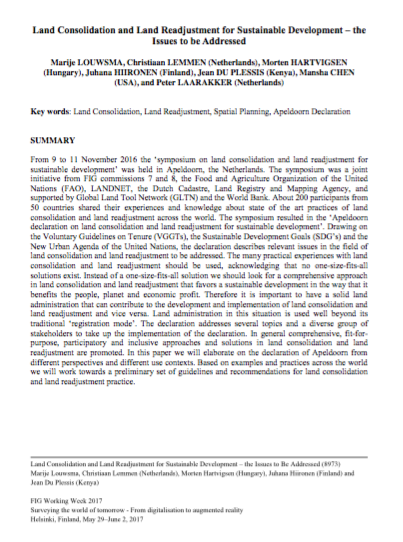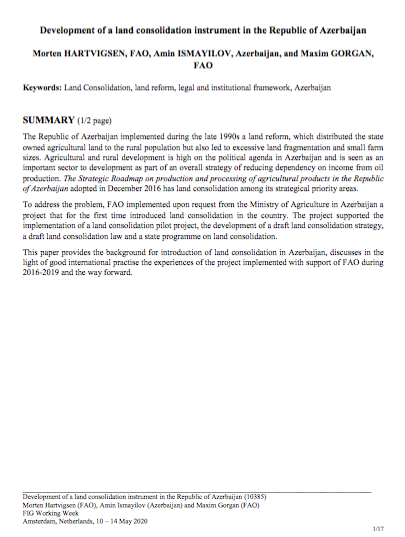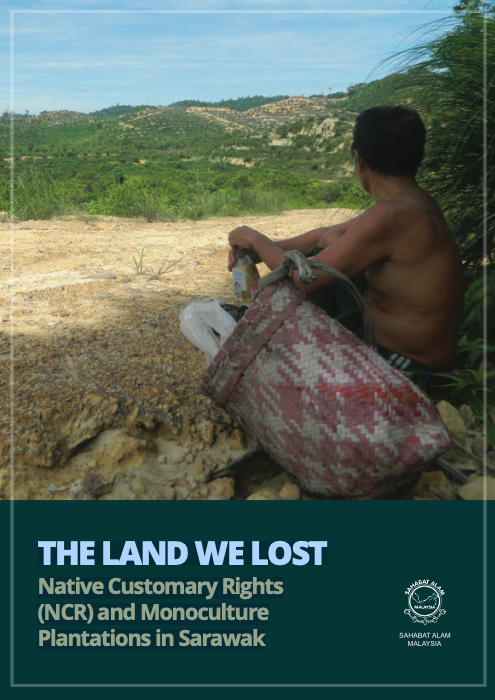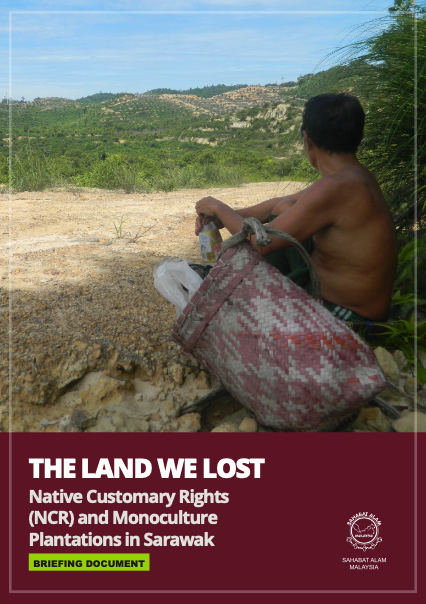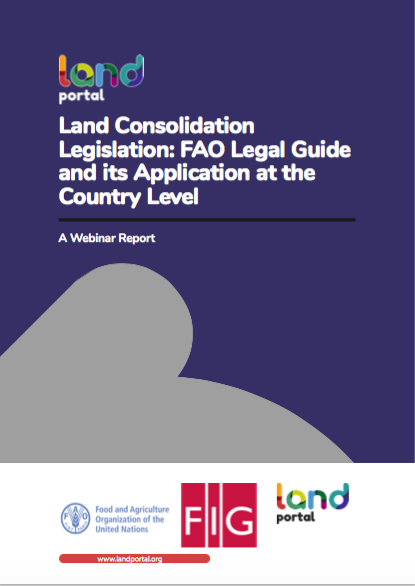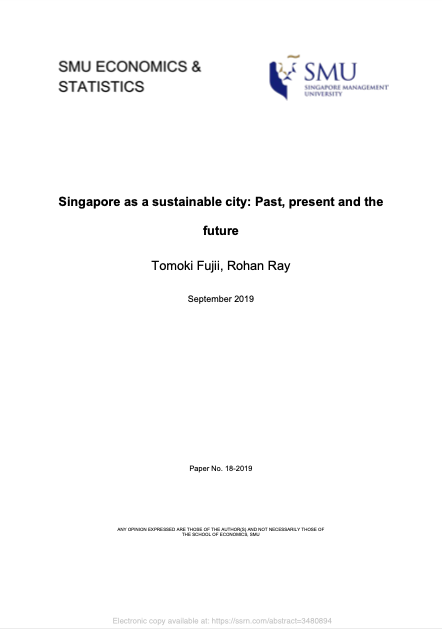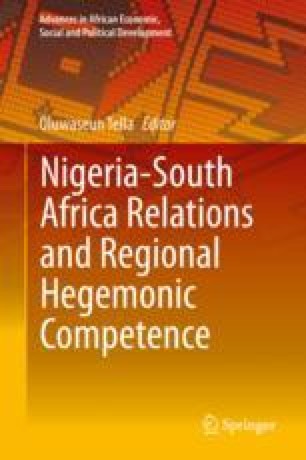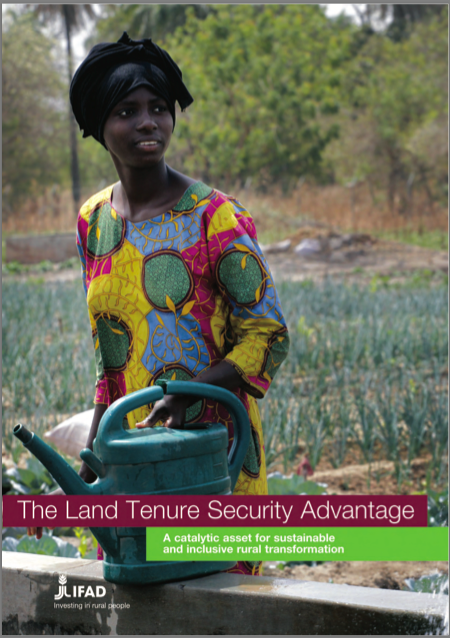Land reform and land fragmentation in Central and Eastern Europe
It has often been stated that land fragmentation and farm structures characterized by small agricultural holdings and farms divided in a large number of parcels have been the side-effect of land reform in Central and Eastern Europe. This article reports the findings of a study of land reform in 25 countries in the region from 1989 and onwards and provides an overview of applied land reform approaches. With a basis in theory on land fragmentation, the linkage between land reform approaches and land fragmentation is explored.

